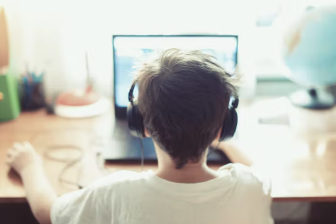
Parents: Children ‘more distracted by digital devices in the home’
Parents may well view digital devices as necessary for their children’s learning but they still worry about the distraction and activities they are missing out on.
That’s one of the main conclusions in a report by academics in Australia, which also reveals that three quarters of parents find it increasingly difficult to control the digital habits of their child or children.
Research from the Gonski Institute for Education at UNSW Sydney shows that as many as 65 per cent of parents also admit that negotiating the use of digital media and technologies at home causes conflicts with their children.
Professor Pasi Sahlberg, Deputy Director of the Gonski Institute for Education, said: “Parents think that digital media and technologies have a dual power of offering children both benefits and drawbacks. Hence, we need smart solutions to address these complex challenges towards sustainable digital wellness for our youth.”
Prof. Sahlberg added that perhaps the most worrying finding is that about a third of families allow their children to use their digital devices after bedtime every single day. Furthermore, three of five children who struggle in school regularly sleep with their digital gadgets.
‘Half of parents would welcome more school support’
“Although our study is not able to prove that night-time use of smartphone or computer causes difficulties to keep up good learning at school, parents should help their children to fall asleep without technology,” he said.
According to earlier findings, two-thirds of Australian teachers observed more children arriving at school tired and often not ready to learn. Among the findings in the survey:
- More than four in five children own at least one screen-based device that belongs to them, and children own, on average, three digital devices at home. Personal ownership of gadgets starts as young as four years old.
- Only 46 per cent of parents felt that their child spends a day without digital technology.
- 83 per cent of parents, carers and grandparents felt that their child was negatively distracted by digital technologies.
- Half of parents said that they would welcome more support from their child’s school to help them and their child to manage digital media and technologies use at home.
Growing up digital
Growing up digital is also becoming an equity issue, say researchers. Lower-income parents and lower-achieving students, in particular, are most at risk of distraction from interactive media use, says the study.
Dr Amy Graham, Research Fellow at the Gonski Institute, said: “This group of parents is less likely to implement effective monitoring and regulation strategies at home around the use of screens. They’re also more likely to believe these devices are having no impact on child development.
“Parents know they need to be role models in the safe and responsible use of digital devices at home, but they still find themselves negatively distracted by digital media and technologies.”
The study feeds into the ongoing Growing Up Digital Australia which is part of an international research project, including Harvard Medical School (U.S.) and Alberta Teachers Association (Canada), investigating how digital media and technologies impact children’s wellbeing, health, and eventually learning at school. The report surveyed nearly 2500 parents, grandparents and caregivers and collected data about more than 5000 children across Australia on home use of digital devices by young people during the pandemic.
The final phase of the research will begin later this year and will capture the views of young people on their use of digital media and technologies.




